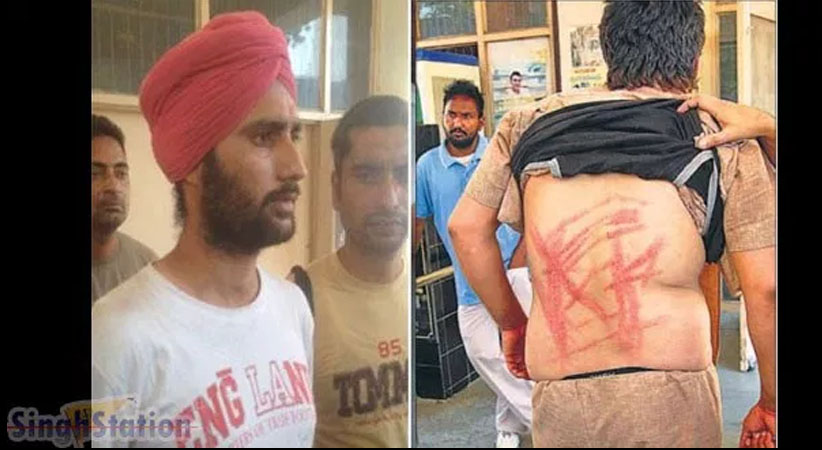NEWS & MEDIA
NEWS & MEDIA
India | 2016-08-03Caste is All Around - The Urban Elite Don't Want To See It

No caste practice is innocuous or harmless
There is a lot of discussion happening in social media over caste of late. There was the Swathi murder case in which a Brahmin girl was allegedly stalked and murdered by a man from a lower caste – this led to discussions and debates on violence against women which were often tinged with the caste angle. Then there was Sofia Ashraf’s ‘Tam-brahm Boy’ which got bouquets for its humour and brickbats for its glorification of a caste identity that has historically oppressed other castes. Even Rajinikanth, who maintains a low profile when it comes to politics, became the subject of caste-related discussions after ‘Kabali’. And now, TM Krishna, a musician who has openly shunned the sabhas for their lack of inclusiveness, has been awarded the Magsaysay for ‘Emergent Leadership’.
All three events have led to much outraging and discussion on the internet though they are not, by any stretch of imagination, the only news items that have a caste angle to them. But violence against Dalits, whether it is rape, flogging or murder, is so routine that it hardly provokes us into expressing an opinion or even thinking about it for more than the ten seconds that it takes for us to read the headline. I don’t see as many people talking about Bezwada Wilson and the relevance of his work, for instance.
From all the discussions that I’ve read and been part of, it appears that a lot of young people simply don’t believe that such a thing as caste discrimination exists in urban, elite society. It’s a problem that’s limited to the villages and perhaps the urban poor. Or the old people in their homes who simply won’t let go of their baggage (power). Caste, they say, is relevant only when you’re picking a life partner and even then, it’s about finding a person who will have a similar background as yours.
It goes without saying that most of these young people are from privileged castes themselves and have almost never experienced any caste-based discrimination other than the ‘so-unfair’ reservation system or a few comments stereotyping their caste identity. I do not doubt their sincerity when they say that they don’t believe in caste superiority or that they have never discriminated against someone because of their caste. I also agree with them when they point out that caste discrimination happens all through the hierarchy and isn’t limited to, say, only the Brahmins. And yet, I often wonder at the caste-blindness of my friends in the myriad ways in which they practice caste without realizing that they are doing so.
Being an upper caste (though not Brahmin), urban woman myself, I speak from a position of privilege. My experiences of caste discrimination are unlikely to shock – nobody has thrown me out of a temple, served me tea in a separate glass in a tea shop, or raped me to teach my community a lesson for its over-reaching ambitions. But there are many instances in which I’ve noticed people around me making casteist statements and endorsing casteist practices with impunity.
In college, I had a friend who would invite us to her house and advise us not to go near her grandma’s side of the kitchen because the grandma was very ‘acharam’. We were not supposed to touch ANYTHING there lest the sky fell on our heads. I remember us discussing the Shankaracharya’s arrest – and the friend’s vociferous arguments supporting the decision to get a Brahmin constable (and nobody else from other castes) to make food for the Shankaracharya in jail because hey, the ‘acharam’ needed to be maintained. The same friend was capable of giving fiery speeches in class about breaking hegemonies, power structures and postmodernism but the irony seemed to have escaped her entirely.
My family does not take the caste name as our surname, so we’ve invariably had nosey neighbours trying to find out which caste we belong to. They knew that we were Malayalees but were we Nair? Menon? Ezhava? It’s only after they somehow found out that we were upper caste, after all, that they would invite us to their homes. One of my colleagues who worked with me previously, told me, as a matter of conversation, that she couldn’t invite me to her house because her family was very conservative and that they follow very strict ‘purity’ rules because of an ongoing ritual (it had something to do with a sacred stone if I remember right). If I visited, she’d have to wash the whole house to ‘purify’ it again.
I’m an unapologetic non-vegetarian – which makes me a villain in the eyes of vegetarian evangelists who cannot see how I can sympathize with a puppy that’s thrown from the terrace while drinking my chicken soup. I agree that there’s some degree of hypocrisy involved in what I do, but are you ready to acknowledge the hypocrisy in what you do? I’m not referring to people who became vegetarian or vegan because they are against animal cruelty but the folks who think nothing of wearing silk sarees or buying leather purses while turning their nose up at non-veg food because it ‘smells so bad’.
Does your large heart not extend to your fellow humans and their sensibilities? As much as you hold your cuisine and culture close to your heart, do you not recognize that non-veg food too has resonance with other communities and their cultures? I fail to recount the number of times a group of upper caste people have sat with me around the table, expressing their dislike of non-veg food on account of it being gross, stinky, repulsive etc while I’m eating it right in front of them. They also think it necessary to tell me that they have a separate pan for making eggs at home because it’s a strict no-no to mix that pan with anything else.
Then there are those who say, ‘Oh order non-veg, I don’t mind.’ I appreciate that their intention is to make me comfortable but why assume that I’m in any discomfort to begin with? Why place yourself higher in the hierarchy because of your food preference? I cannot stand yellow dal, for example, but did I magnanimously allow you to order it or did you wait for my permission to do it?
I worked for a children’s magazine that used to have a food page. When I suggested writing about the origin of the biryani, my boss was uncomfortable with the idea because it could be ‘offensive’ to upper caste communities. Our office was in Chennai, a city that boasts of biryani shops in every nook and corner. We lived in a country where the majority of people are non-vegetarians and yet, it was considered necessary to think about the ‘sentiments’ of the upper castes who might be offended by reading an informational piece on a beloved cuisine.
Within my largely liberal family, too, I’ve heard people make casteist comments. How someone is beautiful ‘in spite of being an SC’. The assumption that people below us in the caste ladder are somehow not all that bright in the upper storey – this is something I’ve heard ad infinitum in the largely Brahmin school that I went to – and it was alarming to hear this repeated in my own family . The reluctance to place non-vegetarian food near puja items. The notions of ‘purity’ that the uppermost castes hold dear are replicated through the hierarchy, with the lower castes propagating the same beliefs because the twisted ideas happen to belong to that of an aspirational community.
None of these experiences that I’ve mentioned above has traumatized me because, as I said, I’m in a privileged position myself. I can only imagine how much worse it gets as we move down the hierarchy. How much more it affects the people who hear this ancient twaddle foisted on them from all quarters. It is the little things and the big things that together make caste the granite roadblock that it is. No caste practice is innocuous or harmless – unless we acknowledge and address this, we’re likely to remain ‘pure’ but morally corrupt.
The News Minute
Link to Source: http://www.thenewsminute.com/article/caste-all-around-us-urban-elite-just-dont-want-see-it-47528





